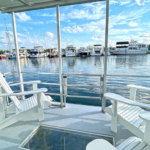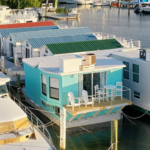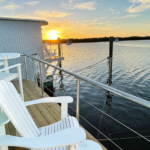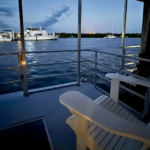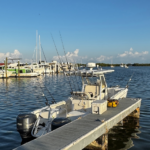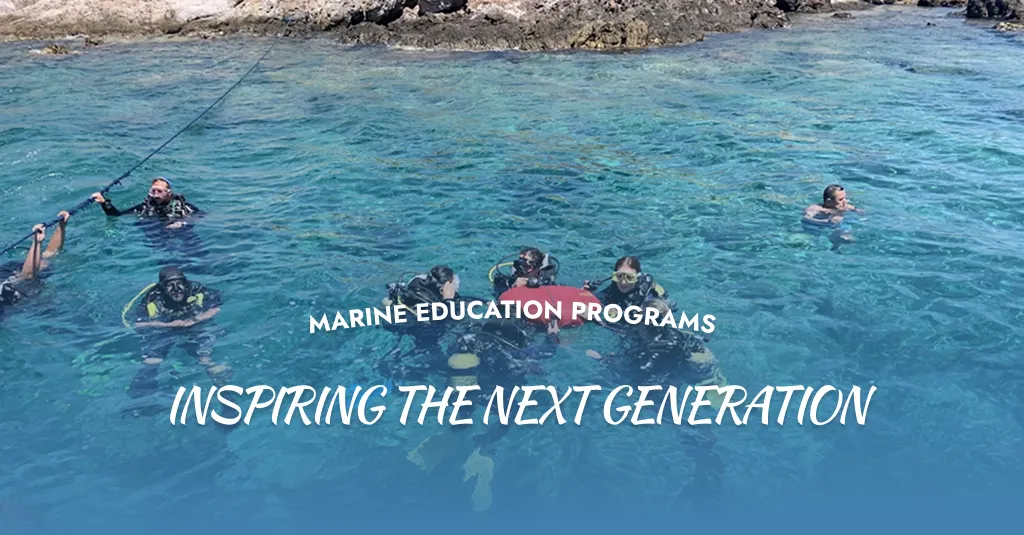
Marine Education Programs: Inspiring the Next Generation
The Florida Keys are among the most diverse underwater ecosystems on the planet, and Mangrove Marina is ideally situated to serve as the epicenter of marine education. In providing programming that links kids to the sea, the marina can contribute to creating a new generation of environmentally aware stewards.
Through partnerships, hands-on learning, and work in the community, educational programs at Mangrove Marina have the potential to inspire curiosity, responsibility, and love for the ocean.
Why Marine Education Matters for Youth
Students of today are decision-makers of tomorrow. When children participate in marine education, they learn about why conservation and sustainable resource use are important, and they can appreciate the wonders of the natural world. Benefits of these types of programs include:
- Developing a heritage of environmental responsibility and stewardship.
- Enhancing school-community relationships.
- Offering experiential learning opportunities beyond the limits of a printed page or a computer monitor.
- Promoting careers in marine science or as environmental advocates in the future.
Through youth programs, Mangrove Marina can create lifelong connections between children and the waters they learn to protect.
Building Strong School Partnerships
Collaboration is the backbone of any successful marine education effort. Creating school partnerships ensures that programs are aligned with curricula and accessible to students of all ages.
Strategies for School Collaboration
- Curriculum Coordination: Collaborate with teachers to enhance science courses with Florida Keys ecology.
- Field Trip Programs: Provide up-to-date visits for students to investigate mangroves, seagrasses, and coral communities.
- Teacher Training Workshops: Equip teachers to use local marine issues as topics.
- After-school Clubs: Sponsor STEM and ocean clubs that do the learning in after-school hours.
Through these approaches, marine educators and schools become partners in the mission at the marina.
Experiential Education: Learning by Doing
The most memorable lessons often happen outside the classroom. By emphasizing experiential education, Mangrove Marina can create immersive experiences for students.
Impactful Field Experiences
- Curriculum coordination: Work with teachers to supplement science classes with Florida Keys ecology.
- Field trip programs: Offer day visits for students to explore mangroves, seagrass, and coral communities.
- Teacher training workshops: Train teachers to teach about local marine issues.
- After-school clubs: Host STEM and ocean clubs that do their learning in after-school hours.
With such strategies, as teachers and marine educators, we are partners in the mission at the marina.
Topics Best Suited for Youth Engagement
When developing marine education programs, focusing on age-appropriate and interesting topics is essential. A few topics that tend to work well with young students are:
- Mangroves as Protectors: They prevent erosion and provide habitat for marine life.
- Coral reefs as Cities of the Sea: biodiversity and threats from bleaching.
- Marine Animals and Adaptations: From manatees to sea turtles, up close and curious!
- Human Impact and Solutions: Stop polluting, start recycling, and use renewable energy.
- Fishing and Food Webs: Grasp the predator and prey balance!
By covering these themes, programs increase Keys’ environmental awareness while fostering a sense of responsibility.
Funding Educational Outreach
Creating impactful programs requires resources, but funding is possible through collaboration and creativity.
Ways to Fund Marine Education
- Funding from environmental groups, such as NOAA or Ocean Conservancy.
- Local business and eco-tour operator corporate sponsorships.
- Fundraising events in the community at the marina.
- Collaborating with nonprofits already engaged in conservation education.
- Combining financial backing with local engagement for long-term, widespread benefits.
Measuring Outcomes of Marine Education Programs
Activities must be run and successful ones at that. Monitoring results demonstrate value and promote further funding in programs that serve young people.
Key Outcome Measures
- Knowledge gains: Pre- and post-program quizzes on ecology subject matter.
- Behavioral changes: Noticing participants are using less plastic or recycling more.
- Engagement rates: Measuring attendance at subsequent offerings of the same program.
- Community response: We are gathering stories from students, parents, and teachers.
These are pointers to how marine education can result in a strong community effect.
Mangrove Marina’s Role in Inspiring the Next Generation
With the support of school partnerships, financial backing of experiential education, and advocacy for Keys’ environmental awareness, Mangrove Marina can be the premier youth outreach organization in the area. Because programs that bring kids nearer to the sea, by way of science instruction, also help cultivate respect for vulnerable ecosystems.
Even the paltry impact of motivating a handful of students to become leaders in conservation can keep the waters of the Keys alive for future generations.
Conclusion
Marine education is more than science; it’s an investment in the future. With well-designed youth programs, strong school connections, and hands-on ecology education, Mangrove Marina grows curiosity, stewardship, and love for the ocean. Through hands-on experiential education and Keys environmental awareness, the marina can motivate a new generation to protect and value the waters they consider home.
FAQs
Marine education programs: How well do they serve different age groups?
Elementary through high school students learn practical skills, but the program can be adapted for all ages.
What kind of collaborations are possible with Mangrove Marina?
Via fieldtrips, curriculum support that is aligned to standards, and after-school marine science clubs!
What are some age-appropriate topics?
Mangroves, coral reefs, sustainable fishing, and wildlife conservation – very interesting topics.
How to make these programs sustainable?
Grants, sponsorship, and partnerships with nonprofits can sustain these outreach efforts.

